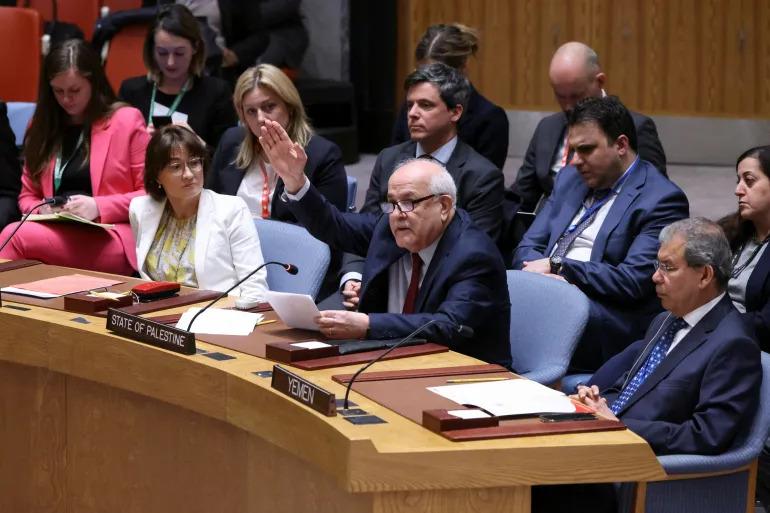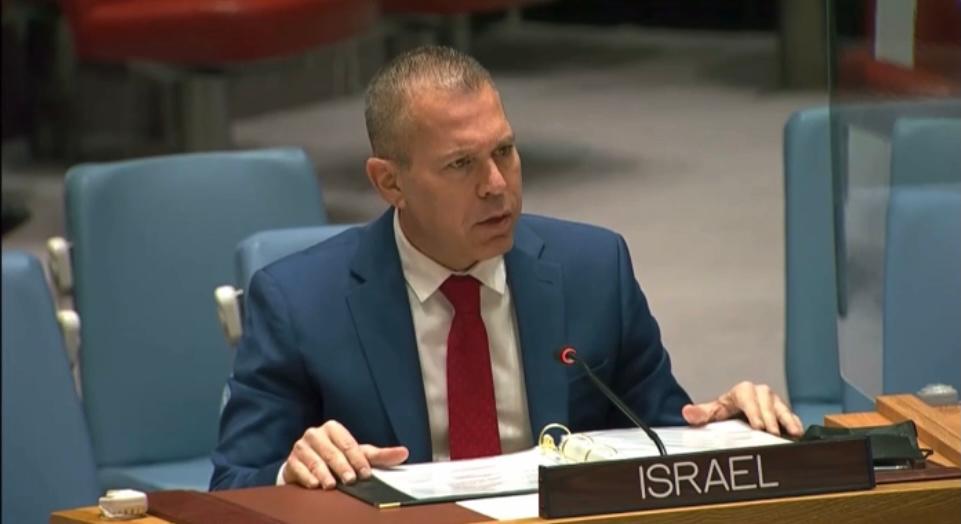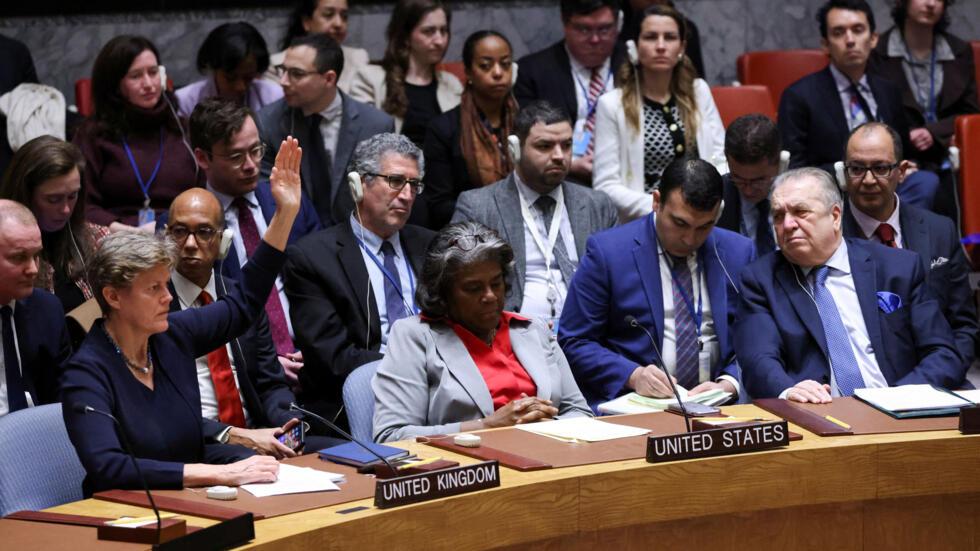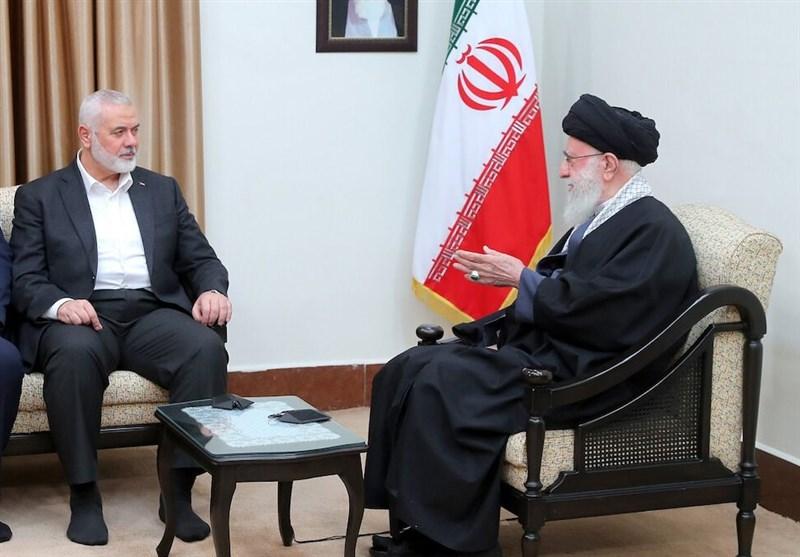Global reactions to UNSC Gaza ceasefire resolution Diverse views, urgent action
Amidst escalating tensions in the Gaza Strip, the recent global reactions to the UNSC resolution calling for a ceasefire have sparked a flurry of reactions from various stakeholders.
From Palestinian leaders advocating for humanitarian aid and prisoner release to Israeli officials criticizing perceived shortcomings, and international actors weighing in with their perspectives, the discourse surrounding the resolution underscores the urgency and complexity of addressing the longstanding conflict between Israel and Hamas to prevent the bloodshed.
The recent response of the global community to the SC resolution calling for a ceasefire in Gaza underscores the international concern for the ongoing hostilities between Israel and Hamas. Despite the abstention of the US, the resolution garnered support from the majority of the Security Council members, reflecting a collective effort to address the escalating conflict.
Palestinian Ambassador to the UN Riyad Mansour's impassioned speech to the SC highlights the urgent need for peace in Gaza. The resolution's emphasis on an "immediate ceasefire" during the holy month of Ramadan signals a recognition of the religious and cultural significance of the period, aiming to mitigate further escalation of violence.
Moreover, the resolution's broader objectives of establishing a long-lasting truce, securing the release of hostages held by Hamas, and ensuring adherence to international law regarding detainees demonstrate a commitment to addressing the root causes of the conflict and promoting a sustainable peace process in the region.
Contrasting responses
The statements from the Palestinian Foreign Ministry, the Fatah Central Committee, and Hamas provide insights into the diverse perspectives within Palestinian leadership regarding the recent resolution.
The Palestinian Foreign Ministry views the resolution as a positive development towards resolving the ongoing conflict, emphasizing the importance of humanitarian aid delivery, prisoner release, and preventing further displacement. This reflects their focus on addressing immediate humanitarian needs and achieving a lasting ceasefire beyond Ramadan.
Sabri Saidam's praise for the resolution highlights optimism within Fatah regarding its potential to advance Palestinian rights and the prospect of Palestinian statehood. This suggests a broader aspiration for diplomatic progress and recognition on the international stage.
On the other hand, Hamas underscores commitment to the resolution's conditions, particularly regarding ceasefire and prisoner exchange. Hamas emphasizes accountability for Israel and calls for the international community to enforce compliance, reflecting their stance on equitable treatment and their readiness for negotiation. Overall, these statements illustrate the complex dynamics and varied priorities within Palestinian factions regarding the resolution and the broader peace process.

The Israeli ambassador to the UN criticized the resolution for its failure to call for a ceasefire in Gaza without linking it to the release of captives, arguing that this approach undermines ongoing efforts to secure the release of hostages held by Hamas. The ambassador's contention is that the resolution gives Hamas hope of achieving a ceasefire without meeting this crucial demand, urging all members of the council to reject it, describing it as shameful.
Additionally, following the passage of the resolution, Israeli Prime Minister Benjamin Netanyahu decided to cancel an Israeli delegation's planned visit to Washington, DC, which was requested by the White House to address concerns about a potential Israeli invasion of Rafah, a densely populated city in southern Gaza. The prime minister's office criticized the US abstention, stating it deviated from the country's usual stance and warning of potential negative impacts on Israel's military operations and efforts to secure the release of hostages held by Hamas.

The White House has stated that the decision to abstain from the recent vote was not a policy change, but rather a result of the final text lacking essential language, such as a condemnation of Hamas. This led to the White House's inability to support the resolution. Additionally, the White House expressed disappointment in Netanyahu's refusal to send his advisors for discussions on the Rafah operation.
Global responses to the UN resolution
China’s UN ambassador highlighted the US' shift in stance towards the SC demands for an immediate ceasefire, following numerous previous vetoes. Despite this, the US continued to make accusations against China, while the ambassador emphasized the importance of the resolution in providing hope for the people of Gaza amidst a dire humanitarian crisis.
On the other hand, Vasily Nebenzya of Russia expressed hope that the resolution would be utilized to promote peace rather than supporting what he referred to as an "inhumane Israeli operation against Palestinians". The Kremlin ambassador stressed Russia's preference for a text that called for a sustainable ceasefire following Ramadan, although he acknowledged disappointment in its failure to pass. He urged the council to persist in efforts towards achieving a lasting peace.
On the other hand, the British ambassador to the UN expressed regret that the resolution did not condemn the recent Hamas attack. She made it clear that Britain condemns such attacks unequivocally and emphasized the importance of upholding international humanitarian law. She stressed the need for immediate implementation of the resolution and called for a focus on achieving lasting peace without a return to violence.
Both ambassadors highlighted the importance of establishing a new Palestinian government for the West Bank and Gaza, supported by an international aid package. They emphasized the urgency of finding a solution to the conflict and working towards a sustainable peace.

South African Foreign Minister Naledi Pandor welcomed the resolution on a public radio broadcast but pointed out that the SC now has a role to play.
Spanish Prime Minister Pedro Sanchez praised the resolution, stating that it aligns with Spain's stance since the outset of the conflict. He emphasized the need for two states, Israel and Palestine, to coexist peacefully and securely in the region.
Ankara viewed the resolution and the potential reinstatement of humanitarian access to Gaza as a positive development. Turkish Foreign Ministry Spokesman Oncu Keceli expressed hope that Israel would promptly adhere to the resolution's requirements.
Prime Minister Anwar Ibrahim of Malaysia strongly endorsed the resolution and called for its immediate implementation. He urged for urgent relief for the people of Gaza, who have been suffering for nearly six months. Anwar also appealed to the US to influence Israel to comply with the ceasefire and allow emergency aid to enter Gaza without delay.
Iran condemns Israeli ‘aggression’
Iran's official position regarding the ongoing conflict in Gaza is characterized by unwavering support for the Palestinian cause and condemnation of Israeli aggression. Ayatollah Seyed Ali Khamenei's meeting with Hamas leader Ismail Haniyeh serves as a symbolic reaffirmation of Iran's commitment to the Palestinian people. Khamenei's commendation of Palestinian resilience against the Israeli occupation underscores Iran's solidarity with Gaza amid escalating tensions, according to Iranian media.

Amidst escalating tensions in the Gaza Strip, Supreme Leader Ayatollah Ali Khamenei reaffirmed Iran's steadfast support for the people of Gaza during a meeting with Hamas leader Ismail Haniyeh.
Khamenei commended the resilience displayed by Palestinians against the Israeli occupation, praising their remarkable resistance. Emphasizing the significance of garnering global support, particularly from the Islamic world and Arab nations, Khamenei underscored Iran's commitment to the Palestinian cause.
Ismail Haniyeh of Hamas visited Tehran shortly after the UN Security Council passed a resolution calling for an immediate ceasefire in Gaza to address the current situation in Gaza with Iranian officials.
At a meeting with Foreign Minister Hossein Amirabdollahian, the primary focus of the meeting was to assess the ongoing conflict in Gaza and the relentless aggression of the Zionist regime against the people of the Gaza Strip and the West Bank.








